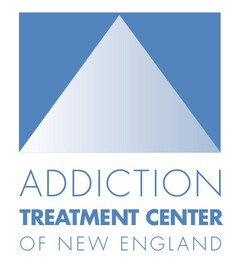Equipping Lives: Searching For Your Suitable Addiction Treatment Center
Equipping Lives: Searching For Your Suitable Addiction Treatment Center
Blog Article
Browsing the Trip of Cleansing in the Comprehensive Addiction Treatment Program
The process of detoxing holds a significant duty in breaking the physical reliance on substances and preparing the person for the succeeding phases of treatment. As people grapple with the difficulties of withdrawal signs and the unpredictabilities that exist ahead, having an organized strategy and a robust support system in location becomes paramount.
Value of Detoxing in Healing

Detoxification sets the foundation for the rest of the dependency therapy program by preparing the person for more treatment and counseling. By cleaning the body important that have actually been clouding judgment and influencing habits, detoxification makes it possible for individuals to approach their recuperation with a clearer mind and stronger focus.
Furthermore, detoxification helps in taking care of the possibly serious withdrawal symptoms that might emerge when drug or alcohol use is quit. Physician closely keep track of individuals during detox to ensure their security and offer needed assistance. With this process, individuals can start their trip towards soberness with a stabilized psychological and physical state, increasing the probability of an effective recuperation.
Comprehending the Detox Process
Detoxing, a basic element of addiction treatment programs, includes an organized procedure targeted at safely removing damaging compounds from the body to help with an effective recuperation journey. The detox procedure generally begins with an analysis to evaluate the person's material use background, physical wellness, and mental wellness. This examination assists medical care specialists determine the most appropriate detoxification strategy customized to the individual's requirements.
During detox, the body experiences withdrawal as it gets used to the absence of the material. Withdrawal symptoms vary relying on the type of substance made use of, the period of usage, and private aspects. Clinical supervision throughout detox is essential to handle withdrawal signs and symptoms and make sure the individual's safety and comfort.

Taking Care Of Withdrawal Signs And Symptoms

Drugs might be used to reduce certain withdrawal signs and symptoms and reduce pain. Medications like methadone or buprenorphine can aid manage opioid withdrawal signs, while benzodiazepines may be made use of for alcohol withdrawal. It is necessary for doctor to meticulously keep track of the person's reaction to these medications to ensure their security and performance.
Along with pharmacological treatments, supportive therapies such as counseling, peer assistance teams, and all natural techniques like mindfulness reflection or yoga can assist people cope with the emotional and psychological difficulties of withdrawal. By addressing withdrawal signs comprehensively, doctor can enhance the detoxing experience and support individuals on their journey to healing.

Assistance Solutions Throughout Detox
Support group play a vital role in supplying social and emotional aid to individuals undertaking detoxing in addiction treatment programs. Throughout the detox process, individuals usually experience a variety of psychological and physical withdrawal signs, making this phase tough - Addiction Treatment Center. Having a solid support system in position can dramatically impact the person's ability to browse through detox efficiently
Support groups provide a system for people to connect with why not find out more others who are going with similar experiences, using a feeling of neighborhood and shared understanding. Healthcare professionals, including physicians, therapists, and specialists, play a crucial role in monitoring the person's progress, supplying medical assistance, and providing assistance throughout the detoxification process.
Looking Ahead: Life After Detoxification
Having effectively finished the cleansing phase, individuals in dependency therapy programs now concentrate on planning for the obstacles and chances that exist ahead in their trip in the direction of recovery. Life after detoxification notes a critical transition period where people should remain to develop on the progress made throughout see here now detoxification to maintain their sobriety. It is crucial for individuals to recognize that the trip in the direction of recuperation is recurring and needs dedication, commitment, and a readiness to welcome modification.
One secret aspect of life after detoxification is the advancement of dealing systems to deal with triggers and desires that might arise. This might include finding out new abilities, such as mindfulness practices, cognitive-behavioral methods, and stress management approaches, to browse challenging circumstances without resorting to compound use. Additionally, people are motivated to actively participate in recurring treatment, assistance teams, and aftercare programs to reinforce their support network and receive guidance as they browse the intricacies of life post-detox.
Conclusion
Understanding the detox process and managing withdrawal symptoms are essential steps towards recovery. It is essential to acknowledge the importance of detox in the procedure of getting rid of dependency and relocating in the direction of a life of soberness.
Clinical guidance throughout detox is vital to manage withdrawal symptoms and guarantee the person's security and convenience.
By understanding the detox procedure and its importance in breaking the cycle of addiction, individuals can embark on a path in the direction of lasting recuperation.
During the detox procedure, individuals usually experience a range of physical and mental withdrawal signs and symptoms, making this stage challenging. Medical care professionals, including physicians, therapists, and therapists, play an essential function in monitoring the person's development, offering clinical assistance, and supplying guidance throughout the detox process.
Life after detox marks a critical shift duration where individuals should proceed to construct on the progress made during detoxification to keep their soberness.
Report this page